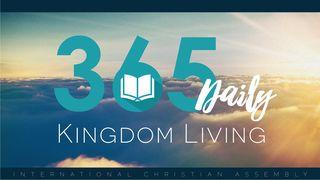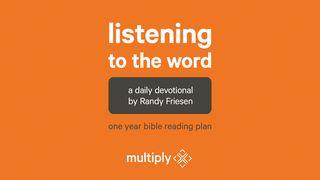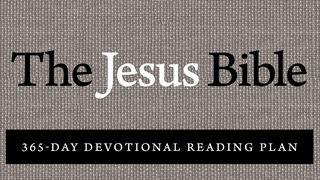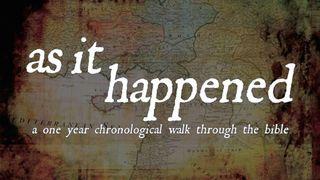Plan info
For The Love Of GodSample

IT IS NEVER EASY TO GET ACROSS a message of impending judgment (Isa. 5) to people who are convinced they are not all that bad, especially when the ruling elite are enjoying good times. So Isaiah resorts to an attention-grabbing song. He picks up the ancient equivalent of a guitar and begins to sing a simple ballad about his true love. His audience is hooked—and then they cannot help but feel the hammer-blows.
In the ballad Isaiah begins by referring to God as “the one I love…. My loved one” (Isa. 5:1). Because God has not yet been identified, doubtless the language instantly captures the audience. But it also reflects what Isaiah feels: he is not a dispassionate observer but a prophet deeply in love with the being and ways of the living God. Not to love him wholly is already part of the problem, whether under the old covenant or the new (cf. Rev. 2:1-7). Israel is often pictured as the Lord’s vine, so it will not be long before Isaiah’s hearers begin to get the point. Isaiah does not restrict himself to subtle allusions, however; he delivers both God’s threatening speech and his own explanation of his ballad-parable.
The people have produced only useless wild grapes, bad fruit. The nature of that fruit is described in the string of woes (Isa. 5:8-25). In a nutshell, the social justice demanded by the covenant has been observed in the breach. Against the specific covenantal insistence that the land is the Lord’s and is to be parceled out fairly, land-grabbing has become the norm, squeezing out the little people (Isa. 5:8-11). The wealth among the elite in Uzziah’s day has fueled wanton arrogance and drunkenness (Isa. 5:11-12) and sneering defiance of God (Isa. 5:18-19). Ultimately the land has overflowed with moral relativism and confusion, doubtless pitched as sophisticated thought, but actually nothing more than a commitment “to call evil good and good evil” (Isa. 5:20). At bottom there is arrogance (Isa. 5:21) and corruption in the administration and the courts (Isa. 5:22-23). The Lord’s judgment is implacable (Isa. 5:24-25).
None of this means that God is checkmated. In the final section of the chapter (Isa. 5:26-30), God says what he will do. Punishment, the destruction of God’s “vineyard,” will come by foreign invasion—the metaphorical language of these verses is frankly terrifying. But the foreign invaders are not merely fortunate opportunists with a powerful army. God himself whistles them up, like someone calling for a dog. Despite the ruinous guilt of the people, Isaiah never doubts that God is sovereign over history and can dispose of nations in judgment as well as in mercy. That theme will grow stronger in this book.
About this Plan

A daily devotional for discovering the riches of God's word: For the Love of God is a daily devotional designed to walk a person through the Bible in a year while assisting the reader in discovering the riches of God's W...
More
We would like to thank The Gospel Coalition for providing this plan. For more information, please visit: thegospelcoalition.org









